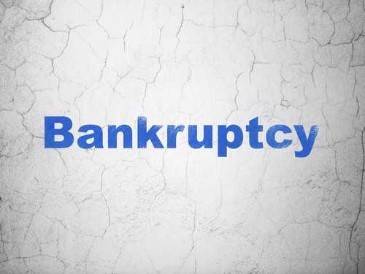Are you considering filing for bankruptcy? Check out these types of bankruptcy, then contact our office for a free consultation.
 What is Bankruptcy?
What is Bankruptcy?
One thing people worry about when they think about bankruptcy is that it’s the end of their life, whereas actually what they learn throughout the process it’s actually the beginning of a new stage or chapter in their life. The preconceived notion is that they’re going to lose everything. Actually, the only thing that they lose is their debt. For Chapter 7, we wipe out the unsecured debt, and they keep their assets. If they’ve got too much equity in their assets, then we look at a Chapter 13 to save those assets.
Other good reasons to file a Chapter 13 would be that you’ve got tax problems. It doesn’t matter if it’s real estate taxes or income taxes, we can resolve those issues, and if you’re behind on a vehicle or it’s even been repossessed, as long as it hasn’t been sold, I can file Chapter 13 and get that vehicle back for people.
Chapter 7 Bankruptcy
Chapter 7 bankruptcies are the first type of bankruptcy that we want to look at for you, because it is the least expensive, and you’ll be in and out of the process in less than four months. The problem is that not everybody has the ability to make a Chapter 7 work for them, and they may have to therefore look at Chapter 13.
Our goal with a Chapter 7 bankruptcy is for you to keep all of your property, and wipe out or discharge your unsecured debt. You walk away free and clear from that. When people come in, and they are in trouble, their credit report is not looking too stellar, so generally speaking, most of the time, when you file a Chapter 7 bankruptcy, one year after discharge, your credit score is actually going to go up.
Chapter 13 Bankruptcy
Chapter 13 bankruptcies are actually wonderful, because they are so powerful. You see on the news all these companies filing Chapter 11 bankruptcy and keep on rolling. They keep in business, and they don’t lose their assets. The same is true for individuals who file a Chapter 13. It’s specifically designed so you lose absolutely nothing. Additionally, it was developed back in the Great Depression when there were so many foreclosures going on that the banks were actually looking at bankruptcy themselves, so what Congress did is they stepped in, and passed the legislation so that you can file a Chapter 13 bankruptcy.
Therefore, if you’re behind on your mortgage payments, or you’re behind on your real estate taxes, we simply go and put those into a Chapter 13 plan and allow you to pay them back. That is a wonderful procedure so that it protects your house. We also can use that on a vehicle to get that back for you, and put the payments through the Chapter 13. What that does is it does two things: It extends the term, and reduces the interest . That way you can keep all of your assets, even if you’re in trouble. One more thing about a Chapter 13 is income taxes.
If the income taxes are older than, say, three and a half years, it’s possible to simply discharge those taxes, but generally speaking, that’s not the case. Income taxes have to be paid back, whether it’s federal or state, and we put those income taxes into a Chapter 13 plan, allow you to pay them back over 60 months, and there’s no interest or penalties when you do that.
Read Our FREE Bankruptcy Guide
Have you or a loved one been considering bankruptcy and have questions about the types of bankruptcy? Contact our Jamestown Bankruptcy Attorney to schedule your free legal consultation today.
Like us on Facebook
